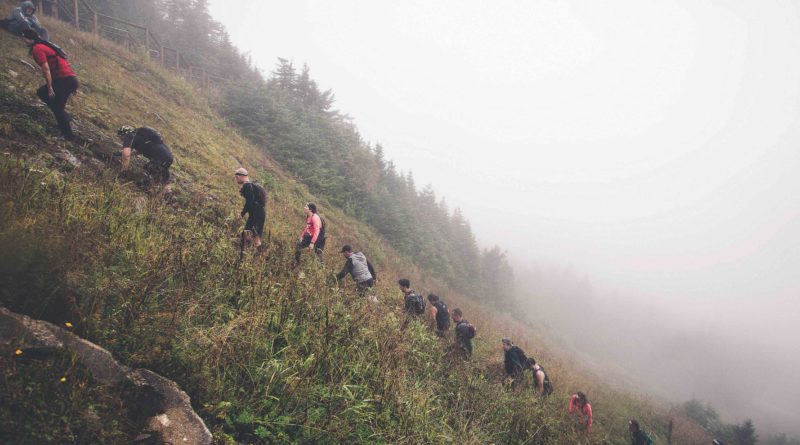The Waiting is the Hardest Part
The hardest part of the last few months? Living with the uncertainty. Questions ranged from the mundane (When can I ride the trails?) to the pragmatic (What businesses are open?) to the existential (Will the pandemic come back in the fall? Will my family survive? Will my business survive?).
The thing that kept those questions in perspective, that kept so many of us sane was this: we got outside, we exercised, and we reached out to others.
Rather than sitting home fretting about the availability of toilet paper, we laced up our shoes, pumped up our heart rates and we moved forward.
It didn’t matter if races were canceled: we competed in them virtually (see “Is Vermont Race Ready,” p. 7), helping charity events raise money as they reduced costs.
If our gear shops were closed, we called for curbside pick-up and drop-off and ordered take-out from restaurants.
Our run groups were no longer gathering in person, but that didn’t mean we were not keeping up with friends. We just did so, as Evan Johnson writes in “Social Running,” in different ways.
And as Peter Delaney, the executive director of RunVermont notes on p. 8. “the silver lining is more people are running more than ever. And after the 2008 market crash, we saw a surge in running for the next four or five years.” This is similar.
Vermonters, ever known for both ingenuity and a deep sense of community, pivoted. Distilleries began making hand sanitizer. Companies such as Stowe’s Inntopia (the booking engine for resorts around the world) helped launch a booking platform for Covid-19 tests and teamed up with Berkshire East’s Jon Schaefer to launch Goggles for Docs, delivering close to 43,000 goggles as of early May. Burton donated 500,000 KN 95 face masks to local hospitals, Darn Tough donated socks, Dodge Ski Boots helped make ventilators and more. For our Gear page in this issue (p. 11), we feature cool products from those companies and others that are giving back.
Our outdoor shops suffered but many managed to stay busy by doing curbside pick-up. (For a list of those whose doors are now open, visit our Bike Shop Directory, on p. 32.)
Event organizers had a tougher time. For those who couldn’t run a virtual event, like Gary Kessler who runs the Green Mountain Stage Race, or Heidi Meyers who runs Rasputitsa there was the uncertainty of knowing whether to plan for a multi-day event that would draw folks from all over the country to Vermont.
“We’re all just holding our breath and waiting to hear from the government about what we can or can’t do,” said Mark Severoff who had been planning to bring Outerbike, the nationally-acclaimed mountain bike demofest to Killington the weekend of July 24-26.
But these decisions pale when we look at the greater scheme of things and the potential impacts of Covid-19. Joshua White, the ultra-runner we profile on p. 26, has a sense of this. As the Chief Medical Officer of Gifford Medical Center he’s been on the frontlines, ensuring the hospital and its staff were ready for the pandemic. Says White: “What you are trained for in emergency medicine is solving problems really fast. A 100-mile race is just a series of problems you have to address.”
We might look at this pandemic the other way, thinking of it not as a sprint but as an endurance race. We might need to adjust our pace, change our expectations, meter out the fuel we need to get through.
But we’re athletes. We will make it.
—Lisa Lynn, Editor
Opening photo: The 2019 Spartan Race at Killington. Courtesy Spartan

